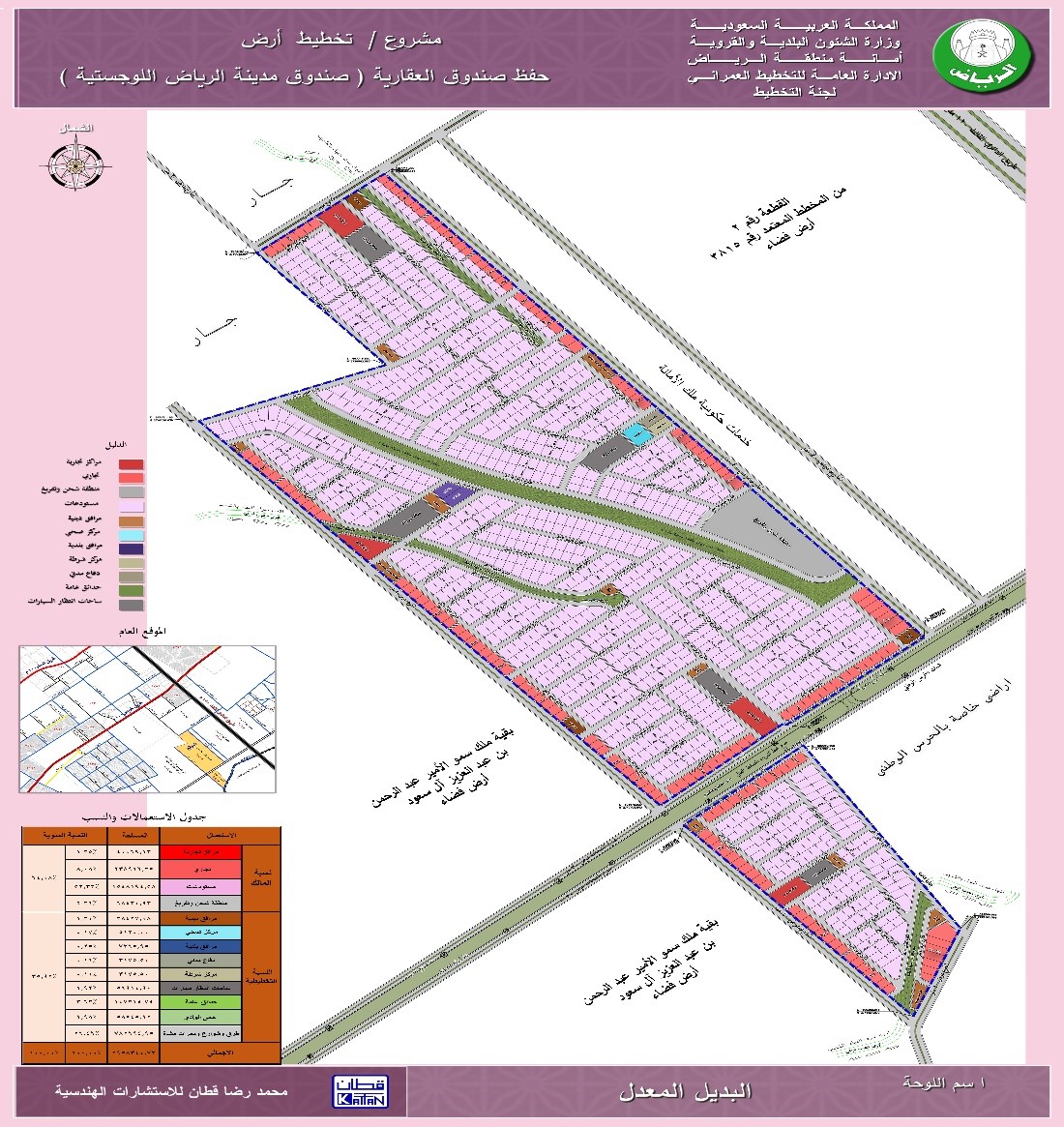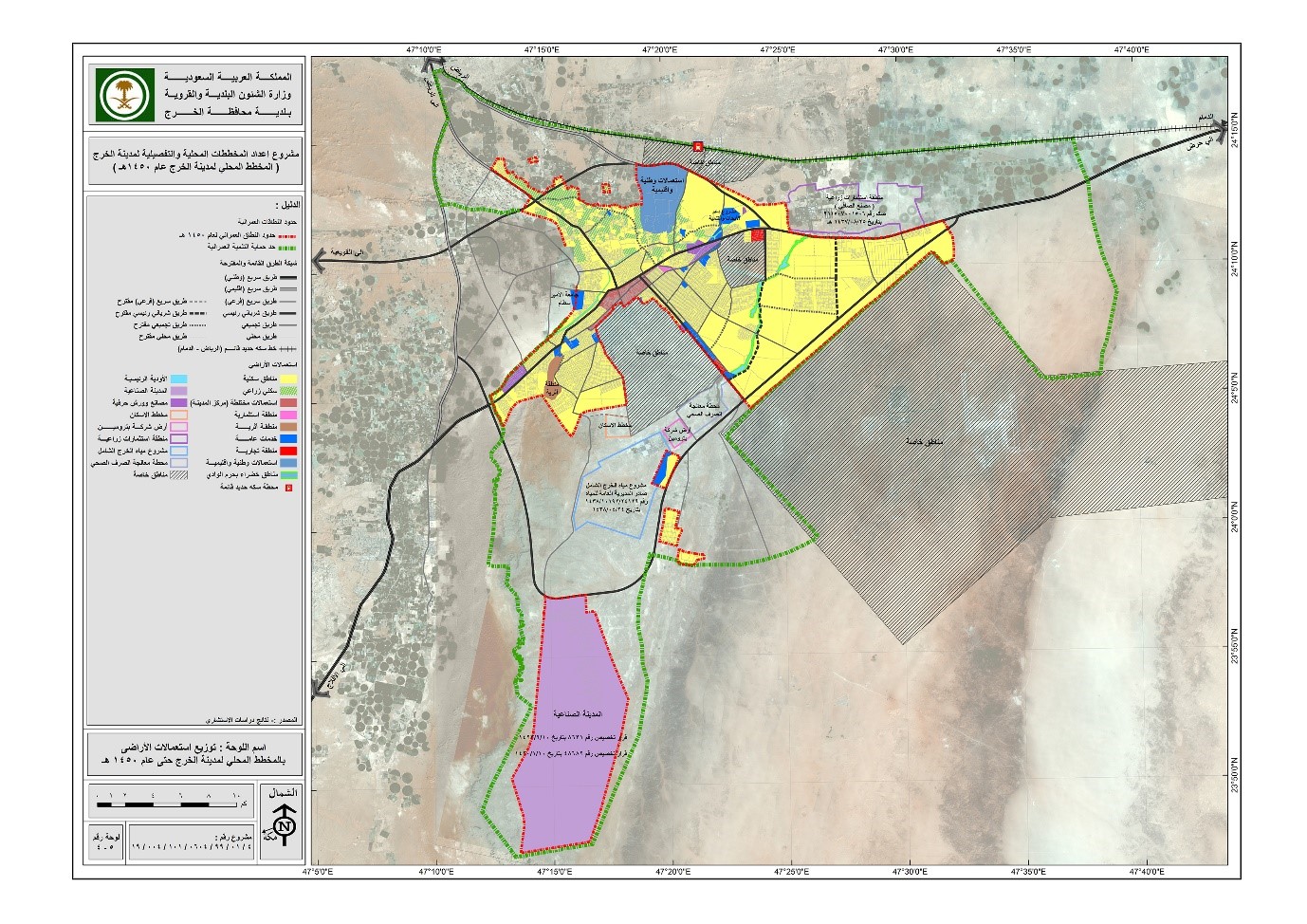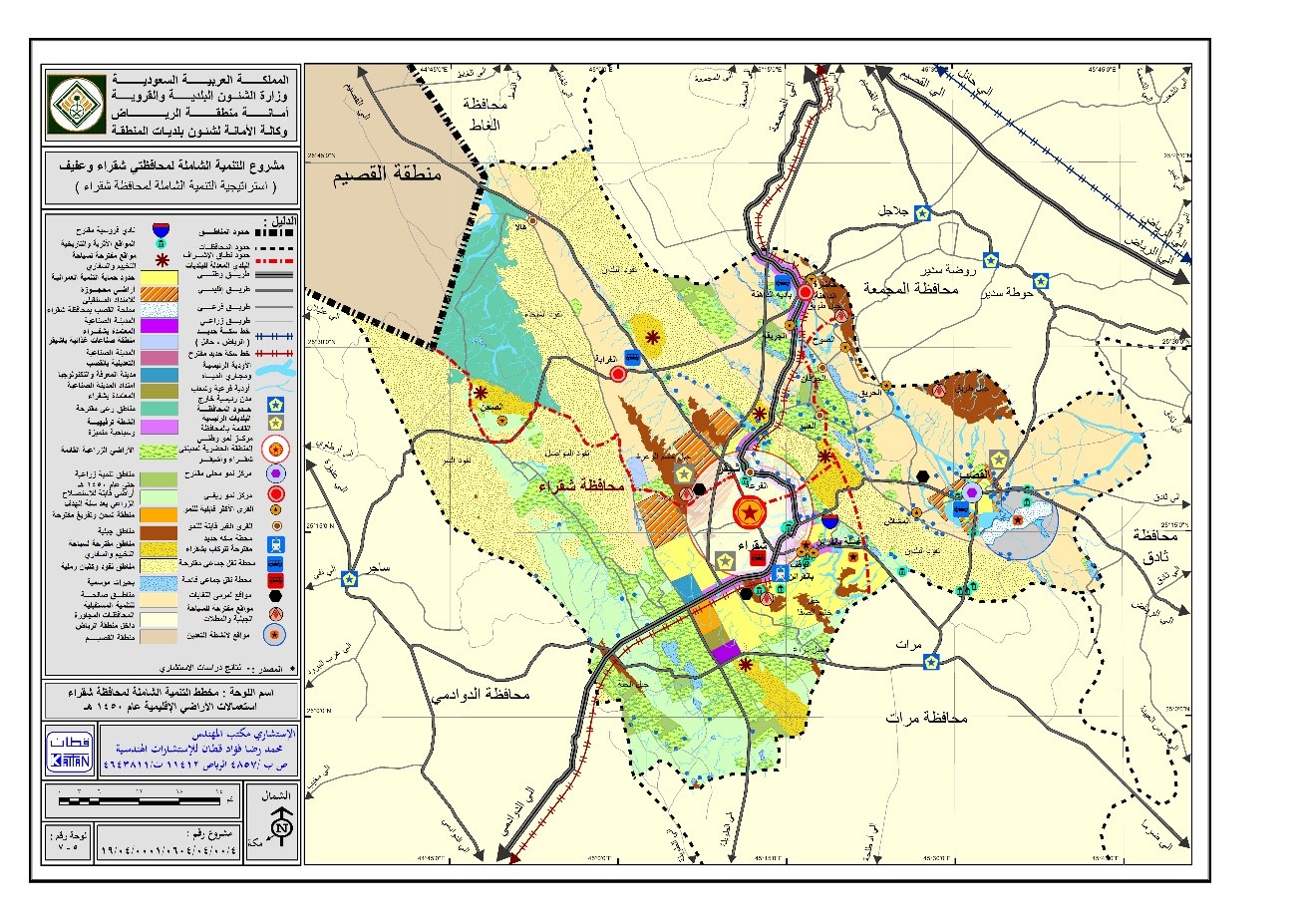Regional planning fields :
- Regional planning is concerned with studying and analyzing all the potentials and resources of the main administrative regions and governorates which contribute to setting regional development strategies that define the regional and functional role played by the region or the governorate at the national and regional level. It is concerned with the development of a prospective vision for the uses of regional lands, proposing a regional system that allows for the absorption of future development work, defining the role of urban communities in the light of their regional and local role and determining the functional and productive relations between these urban communities in order to achieve balanced development and integration between urban and rural areas. The regional planning also outlines sectoral development strategies in the fields of (road and transport network development, public service delivery programs, public utility network development policies, economic development strategy for the governorate or region) and proposes policies and mechanisms for implementing regional development strategies.
City and village planning field :
- Structural plans for cities and villages: Structural plans for cities are concerned with the study of functional relations between the city and the urban communities and production areas surrounding it and develop a long-term vision of the nature and form of urban development in the city and determine the best trends of urban expansion in line with the natural conditions of the site and contribute to solving the urban problems faced by the city as well as determine the uses future land and proposals for the development of the road and transport network. The structural plan also outlines the needs of the city's population of public services in light of the population and urban growth rates of the city, develops proposals for the development of public utility networks in the city, identifies the stages of urban development and controls, it also sets construction regulations and requirements in the city neighborhoods, in addition to proposing policies and mechanisms for the implementation of the structural plan.
Detailed planning field :
- The detailed planning is concerned with determining the detailed uses of the land in the city neighborhoods accurately and proposes the controls of land plots divisions, population and construction densities, regulations of the construction of plots, roads and sidewalks and pedestrian paths, planning parking spaces, types, locations and areas of public services lands and lines of public utility networks. Detailed plans for city neighborhoods and centers They are detailed planning projects for re-planning existing historical or random neighborhoods, planning modern neighborhoods in the city, planning to develop the central area of the city, or planning to develop areas of special nature such as archaeological, tourist, historical and cultural areas in cities.
Planning of private lands :
- Private land is planned for residential, commercial, and industrial uses, and warehouses, public services or agricultural restrooms, this includes preparation of cadastral surveys of private land, preparation of planning studies for the site, studying the needs of the owner, preparation of the final plan of the site and follow-up procedures to approve the plan from the secretariat or the ministry and then apply it in site.
Government Land Planning (Grants) :
- The plans for the division of government lands required by the secretariats or municipalities from the office are prepared, which are the lands allocated as ownership grants to citizens. The Office prepares and follows up the procedures of their approval and application on site, issuing land documents and handing over the lands to citizens after allocation to them by the secretariats or municipalities.




